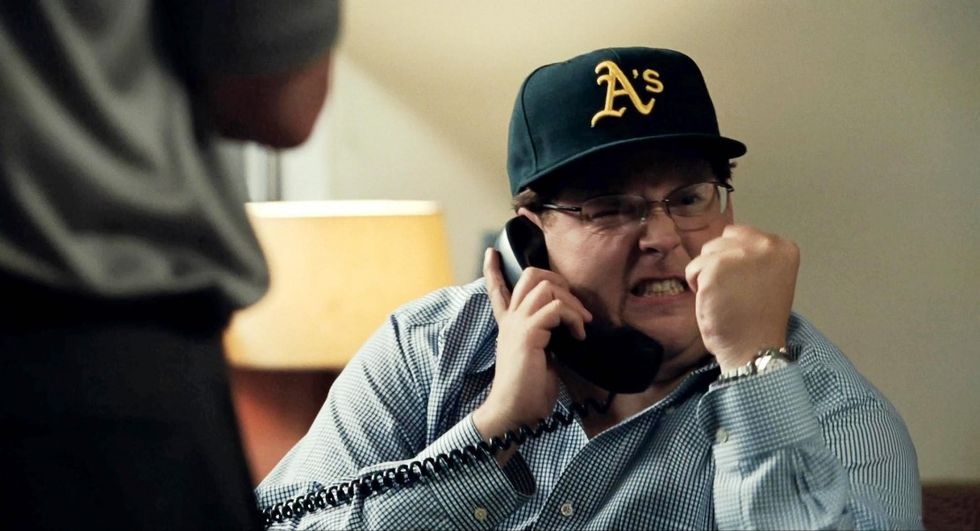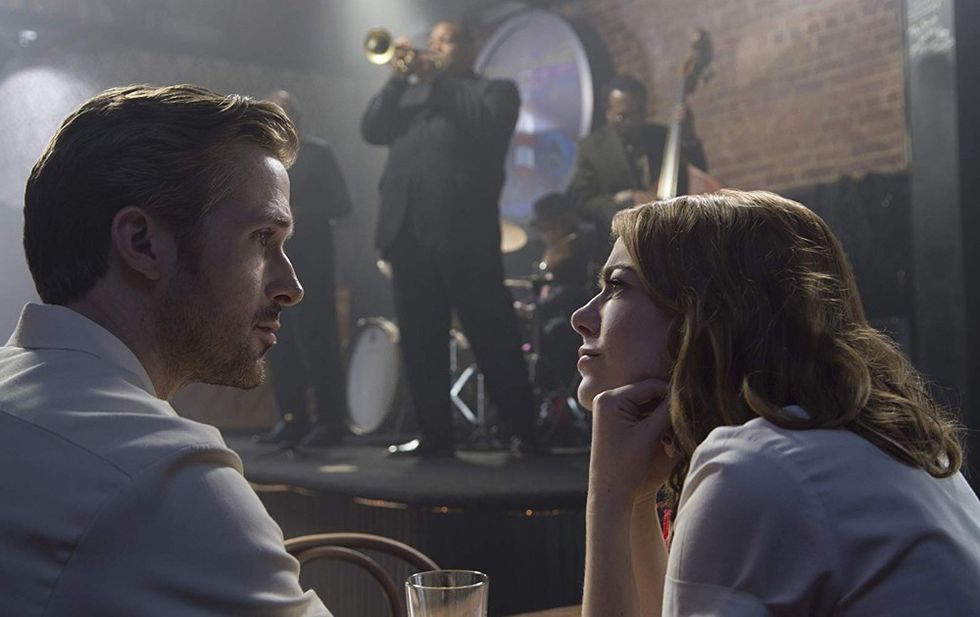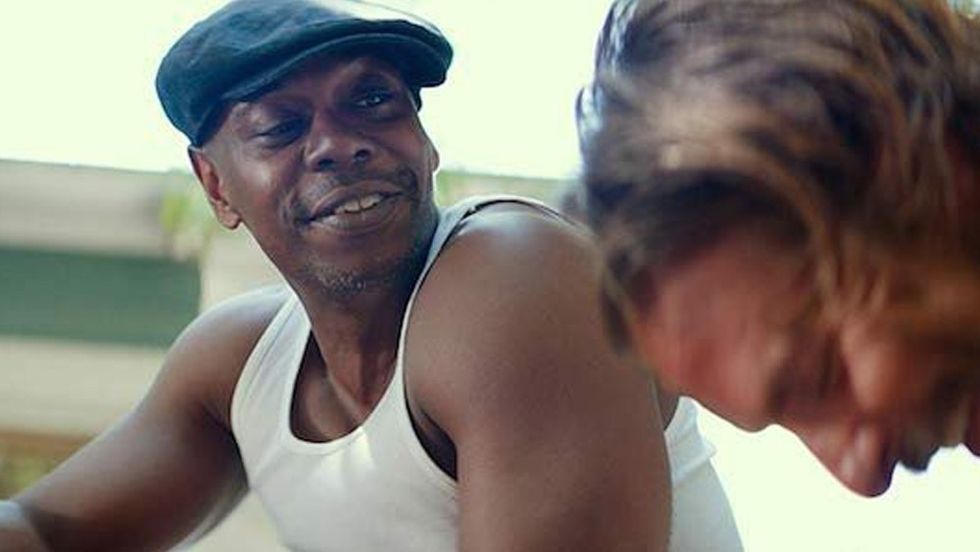How to Get Your Foot in the Door as a Production Sound Mixer
Production sound mixer Steven Morrow shares sage advice on leveling up your sound career.

When it comes to making a film, there can be 50+ people who are there to serve the image and only a few who care about the sound. To make it as a production sound mixer, you have to love your job. Steven Morrow is one of those people who shamelessly does.
“Throughout my career, I’ve always tried to work,” Morrow told No Film School via phone. “When I first started, I was taking any job I could. If they didn’t pay well, or at all, I took it as an opportunity to learn without the pressure.”
Morrow earned his stripes in sound by scooping up indie projects before landing a union gig on a Nickelodeon series. He credits much of his career through the early relationships he formed working on gigs for practically nothing. It paid off, having since worked on Little Miss Sunshine, La La Land, A Star Is Born, and Ford v Ferrari. The last three earned him Academy Award nominations.
He's currently shooting Olivia Wilde’s next film Don’t Worry Darling, a 1950s psychological thriller with a cast that includes Gemma Chen, Florence Pugh, Chris Pine, and Harry Styles.
We picked his brain about what it takes to get your foot in the door as a production mixer, and more importantly, how to keep it open. Here’s what he had to say.
Say yes to every gig you can
“When you’re first starting out, try to take as many jobs as you can, even if it doesn’t pay well. You can use it as an opportunity to learn without pressure. Imagine getting paid $1 from your neighbor to wash your car. Now imagine them giving you $100,000. The pressure is so different. If you miss a spot on the car for $1, no one is complaining. Those non-paying gigs afford you the opportunity to hone your craft so when the money does start showing up, you won’t feel the pressure.”
Production sound mixer mentality
“The priority on set is the image. That’s what’s production is spending their money on. When it comes time for post, that’s when they’ll spend the money on sound. So you have to be able to enjoy the job as a production sound mixer for yourself and not for the praise that you might get from other people.
For a lot of the job, you’ll be ignored unless there’s something that goes wrong. You’re kind of on an island with your team, and from time to time you’re just an employee. Other times, you’re a filmmaker where your opinion is sought and asked. Sometimes you’re just there to get the job done and not to be heard from, and that’s okay. There are levels of participation, and you need to be good with your own.”

Negotiating rates
“When I started out, I typically shied away from discussions where a producer promised that if the movie got picked up, there would be pay. None one on the crew side realistically sees a dime from a movie after it gets picked up. And I’m not the type of person who’s going to track them down later on for the money.
Instead, I would say, here’s the rate I can do per day, and the rate per week for the equipment.
Early on [the late 90s], I would suggest that I could go low as $50 per day and then they could rent the equipment for me to mix on. What I quickly learned was that I was getting paid $250 a week, and the equipment was getting paid $750 for the week. I realized if I owned the equipment, I can triple my wage keeping that money.
You also have to make sure to not get exploited. If you’re going to work for free, make sure it isn’t going to cost you anything to get off the couch. As the saying goes, work always gets work. If you do a good job and you’re pleasant to be around, it will generate more work for you.
The hardest part of negotiating is the fear you’re going to scare them away. In the back of my head when I was starting out was that there were 100 guys in line for the gig behind me. The lesson I learned a couple of times the hard way is to shoot high and then judge the voice on the phone.
Early on, I would get a phone call and they would ask me what my rate was, and I would say, 'How about $400 per day?' And they would say, 'Oh great!' And I was like, I bet they were willing to go higher. But you can’t negotiate higher.
Once you take the job, you have to be happy with the rate you’ve negotiated. Even if you find out everyone is getting paid 10 times the amount, you set your rate. You shouldn’t renegotiate. If you do, you’re not making friends.
So, if you can, shoot high enough to make the gig worth it for yourself, and then judge their reaction. If you’re too high, let them know you’re willing to work with them and ask what they had in mind. If they say, 'Well, I only have $500.' Then you can decide. Am I going to leave my house for that? Yes, absolutely.”
Don’t nickel and dime
"When negotiating your rental rates, don’t nickel and dime people. If your sound package is $200 for the day, but they want Comteks it’s an extra $20, or if they want a speaker it’s another $50, that’s probably going to piss a lot of people off. Come up with a number that covers everything.
When you get to bigger productions and are working with UPMs [unit production managers], you especially don’t want to keep going back for more money. Make your deal so you’ll never have to go back to the UPM for more money. When you do that, your relationship changes. During production, they’ll enjoy coming around you.
When a UPM goes up to a cameraperson or grip, they’re wondering what lens or equipment they’ll be asking for them that week. With sound, we’re really the only department that sets the rate at the beginning and gets the deal done. Then after, they’re social with you. You’re their oasis that they can go to who’s not going to ask them for anything. And the UPM is also the person who will hire you for their next three films.”

On managing expectations
“When you’re on a set where you’re treated like an employee and you’re there just to do the job, you can get burned out from time to time. But if you love the craft, that’s what’s going to keep you going.
Not every director is going to want to hear from you when an issue arises on set. There’s going to be situations when a director will say they don’t care and move on even before you open your mouth. There will be other times when a director will hear [you] out, consider it, yet still move on. And there will be times where they’ll give you another take.
You can expect all three to happen. With sound, they can fix [it] later. Sometimes, it’s not ideal. But that’s what we signed up for."
One when to ask a take for sound
"When you’re starting out, you’re not going to be 100% sure what is passible in post-production. You’ll record something that’s edgy and think it’s going to be a problem. But as you go through your career, you can seek out those questions through relationships with post producers. It never hurts to ask to sit in on a mix. Doing so, you’ll be able to learn what is usable and what is not.
Knowing that will help you on set when an issue might not be a big deal and the director looks to you and asks, ‘Do we have it?’ And you can confidently say, we have it.

You should also have a good sense of your place on set. You’re there for sound, they want you to speak up when there’s an issue, but they don’t want you to be pulling the fire alarm every time something small happens. You have to be able to judge the room and think about how the day is going.
A tip I can share is to trust your instinct and to pay attention to what’s happening around you.
For example, if you’re over a flight path. You can wait for it to be totally silent to tell them to roll. But then by the time they ramp up again, another plane is flying overhead near the end of the take. If you’ve been paying attention to the day, you can tell them to go earlier so by the time they ramp back up, the plane has already cleared overhead.
You never want to waste anyone’s time with a costly sound delay. When you stay silent for weeks on end, and then at some point say you have an issue that needs to be fixed, they usually jump to do it. You want it to be when you say you have a problem, they say, ‘Oh, let’s do it that again.'"

On having some humility
"I will never be the one to complain about working. I love what I do and at any minute you can be out of work. There were moments in my career where it’s happened and I’ve sat around for a month. It’s a real gut check.
So when I am working, it’s hard to complain. It’s like complaining about the free food you get on set. During lunch, my crew will find ourselves talking about a terrible dish from crafty. And we’ll jokingly say, ‘What? Is your free salmon not cooked properly?’
The reality is, it’s pretty silly to complain about something like that. It’s those kinds of things that help you keep yourself grounded."
For more, see our ongoing coverage of Sound Week 2020.
No Film School's podcast and editorial coverage of the Sound Week 2020 is sponsored by RØDE.
















